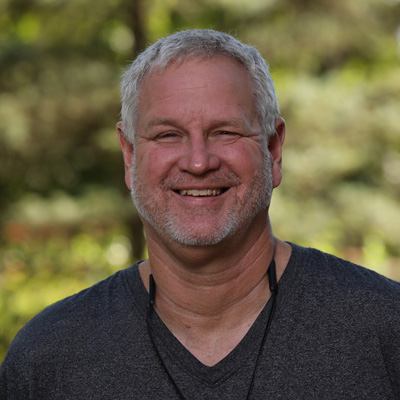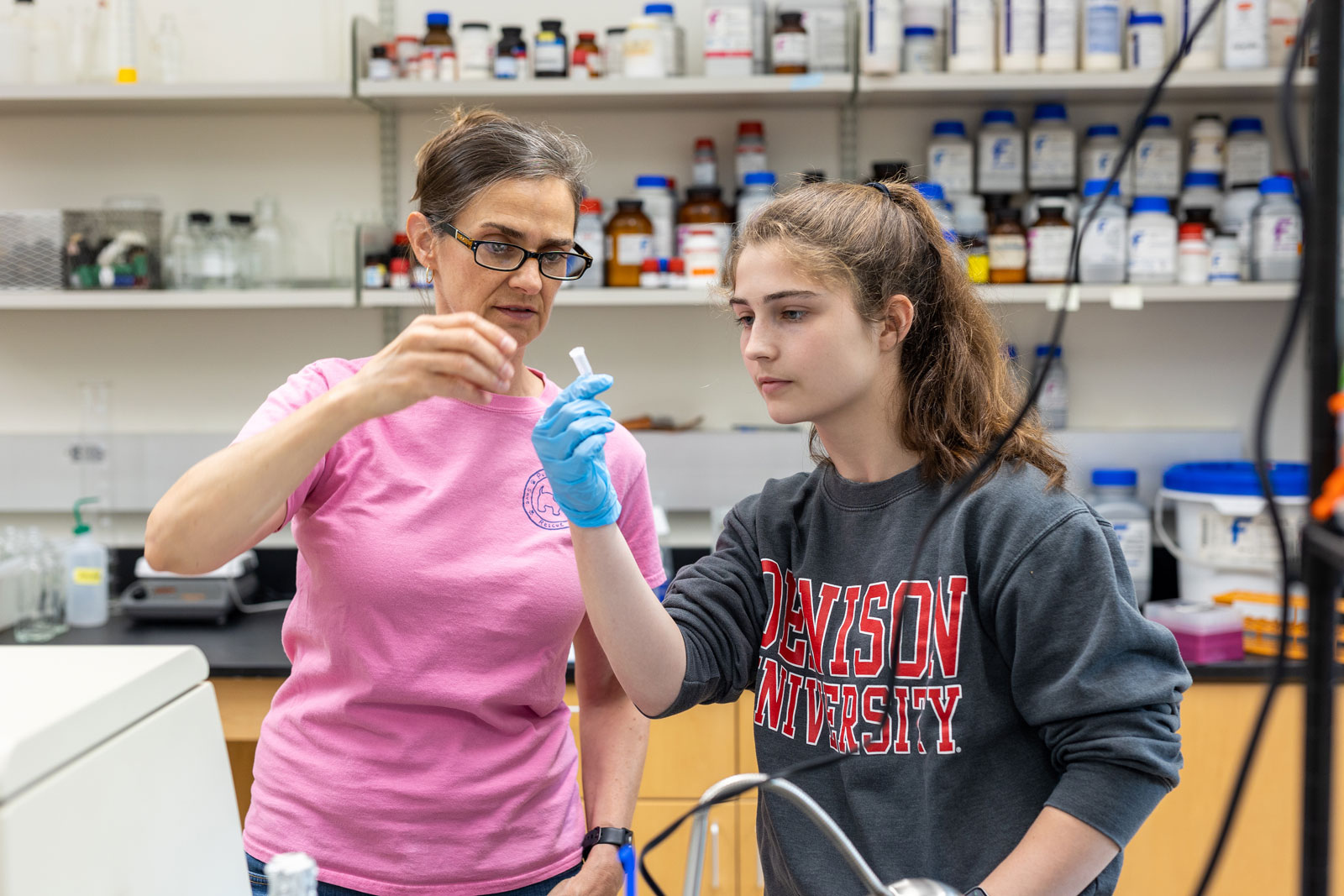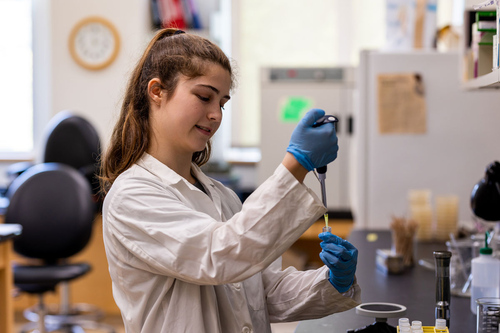Abby Engler’s fascination with science took hold at an early age.
While her classmates sunk into video games, Engler loved nothing more than conducting experiments with model rockets and watching the eruptions of papier-mache volcanoes filled with baking soda and vinegar. Her idea of quality television was watching “The Mythbusters.”
So as Engler ’25 progressed through her first year at Denison University, the biochemistry major wondered whether she could spend her summer doing something more than teaching swim lessons and lifeguarding at her home in Charlottesville, Va.
She found her answer through Denison’s Summer Scholars program.
“I realized I was really interested in the research aspect of science,” she said. “I wanted to go further and learn what research was like because it’s something I want to consider for my future.”
Developing student researchers in all disciplines
The award-winning Summer Scholars program, open to students in all disciplines, has been available to rising sophomores, juniors, and seniors at Denison for more than two decades. Applicants submit proposals for independent or collaborative projects in the sciences, social sciences, humanities, fine arts, and interdisciplinary fields.
Each summer, endowed funds support 120 to 140 students pursuing research under the supervision of a faculty member for up to 10 weeks, said Suzanne G. Shoger, administrative director of the Lisska Center for Intellectual Engagement. Scholars receive a stipend and a housing allowance, and those who travel off campus for their projects also receive travel funding.
In 2022, one student went to Southeast Asia to study the perils and instability of the film industry in Vietnam. Another group journeyed to Ireland to examine an excavation site with the goal of identifying how indigenous people responded to the Anglo-Norman conquest in the 12th century. On-campus projects included a look at the Islamic transformation in the post-Soviet Tajikistan and the rise of populism in French political culture.
The Council on Undergraduate Research has recognized Denison as a leader in the field with the organization’s award for Undergraduate Research Accomplishments.
Building lasting faculty relationships
For Engler, the Summer Scholar experience meant five weeks working in the labs of associate professor Christine Weingart.
Engler is an eighth-generation Denisonian. One famous relative has a residence hall named in honor of them — Dr. Daniel Shepardson, the former president of the Young Ladies Institute, which merged with Denison in 1927.
Family tradition aside, Engler says it was the school’s intimate setting and small class sizes that drew her to central Ohio. It was, however, sage advice from her uncle, Jackson D. Pellett ’95, that led her down a path to the Summer Scholars program.
“He was the one who told me about all the opportunities here, and he emphasized the importance of going to office hours and getting to know my professors,” Engler said. “(After Summer Scholars), I feel like I’ve gotten to know Dr. Weingart on a more personal level.”
Moving key research forward
Weingart has spent nearly two decades researching Burkholderia cenocepacia, an opportunistic pathogen particularly dangerous to cystic fibrosis patients. Medicine has long intrigued Engler, who grew up with a sister diagnosed with Type 1 diabetes. Her goal was to assist Weingart in conducting research to combat bacterial infections.
Outfitted in a white lab coat, Engler spent five days a week taking copious notes and working alongside several upperclassmen. She lost count of how many pairs of blue disposable gloves she wore to guard against contamination.
“Abby’s enthusiasm, her genuine curiosity, and her desire to learn helped move the scientific knowledge of Burkholderia cenocepacia forward,” Weingart said. “Her contribution will play an important role in our future work.”
Although her project is not graded, Engler must summarize her work and present her findings in posterboard form when classes resume for the fall semester.
“Some people will go into research like this and realize this isn’t what they want, so it has benefits both ways no matter what you take out of it,” Engler said. “I’ve liked the research even more than I thought I would. It’s something I will consider as a future career path.”









